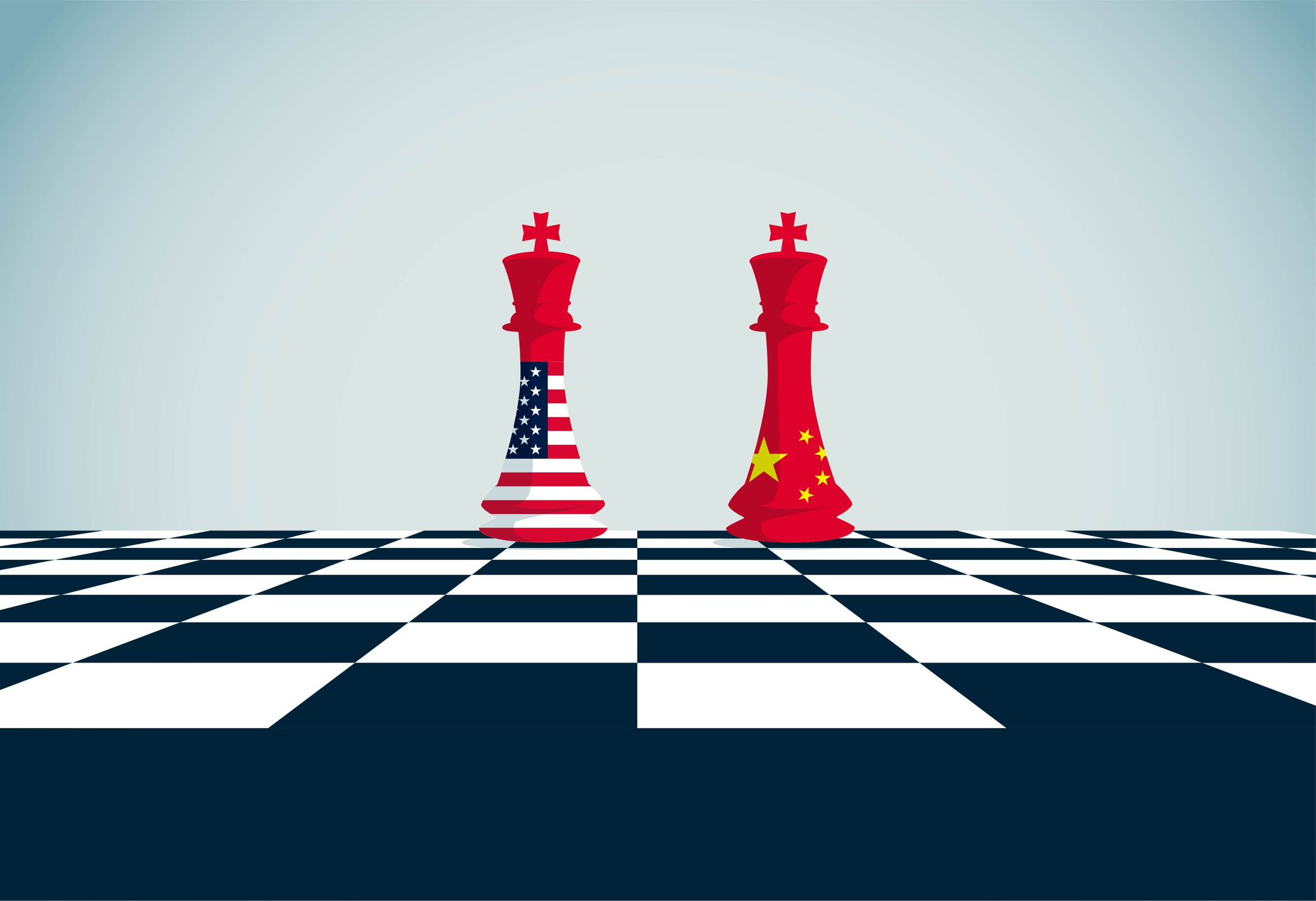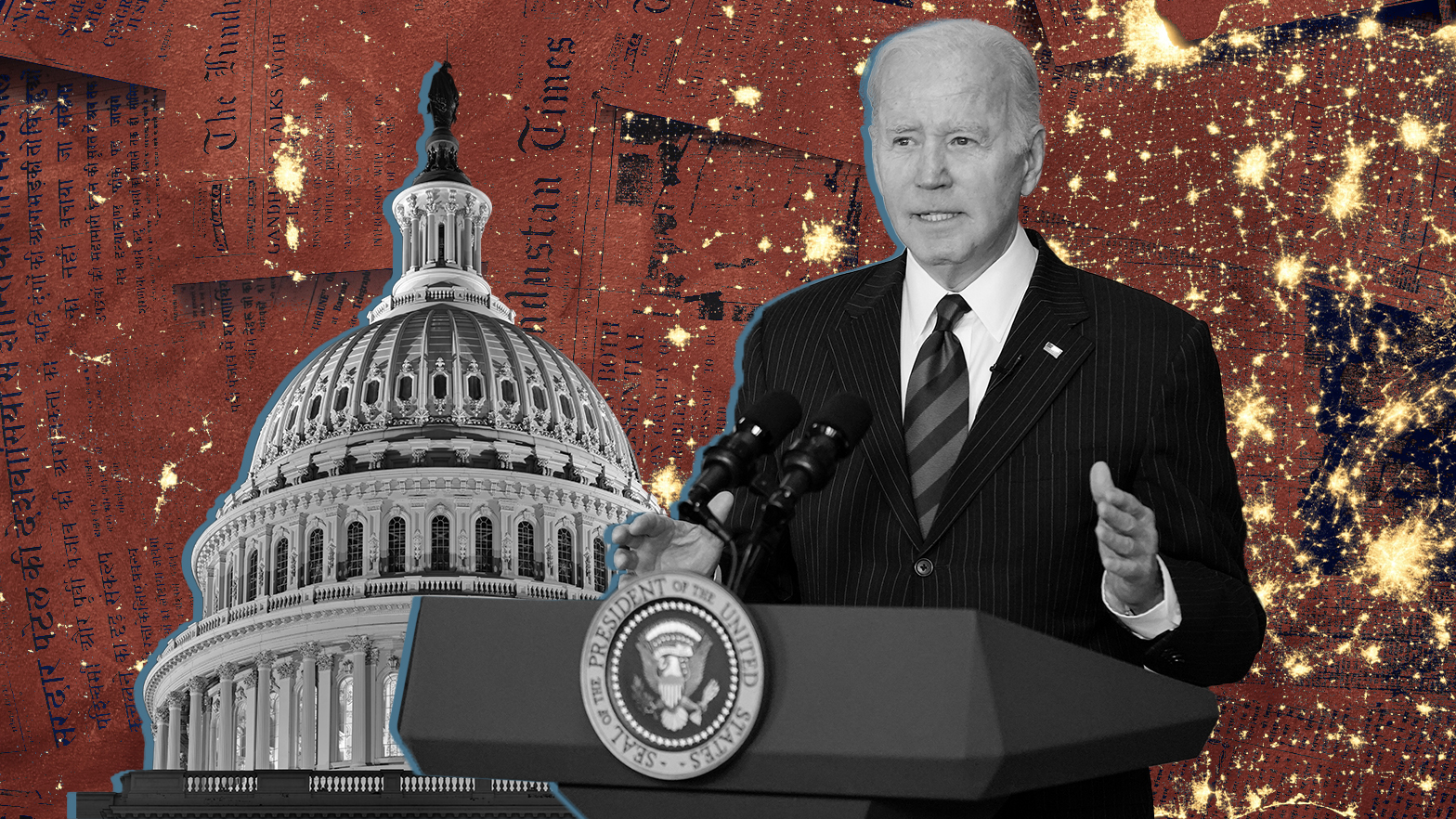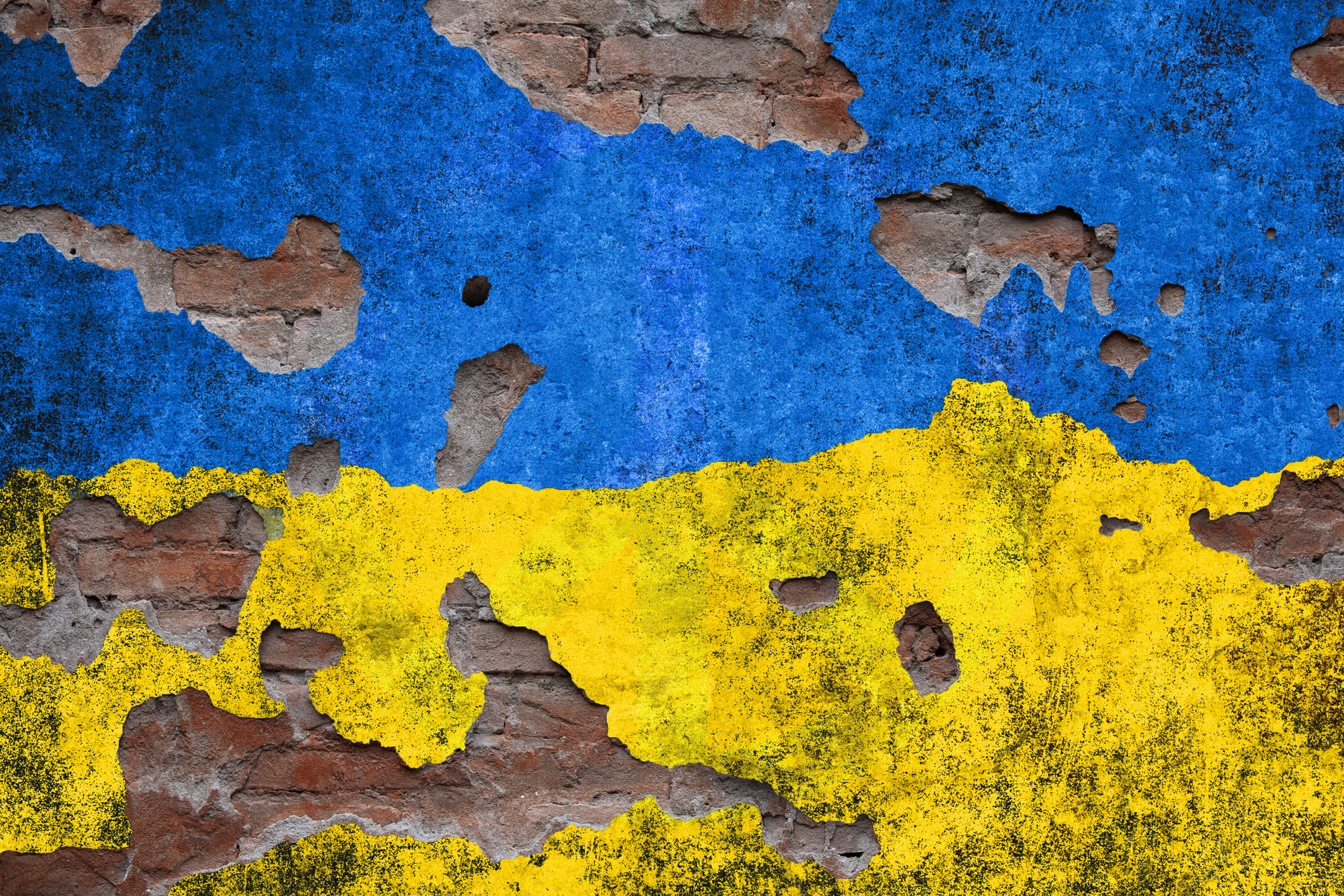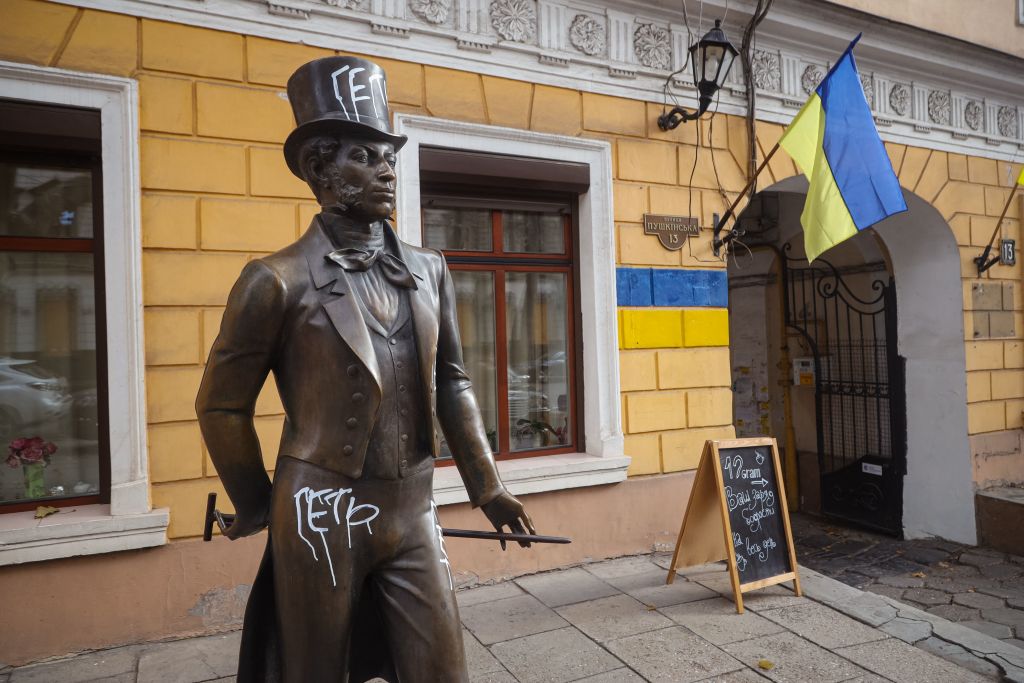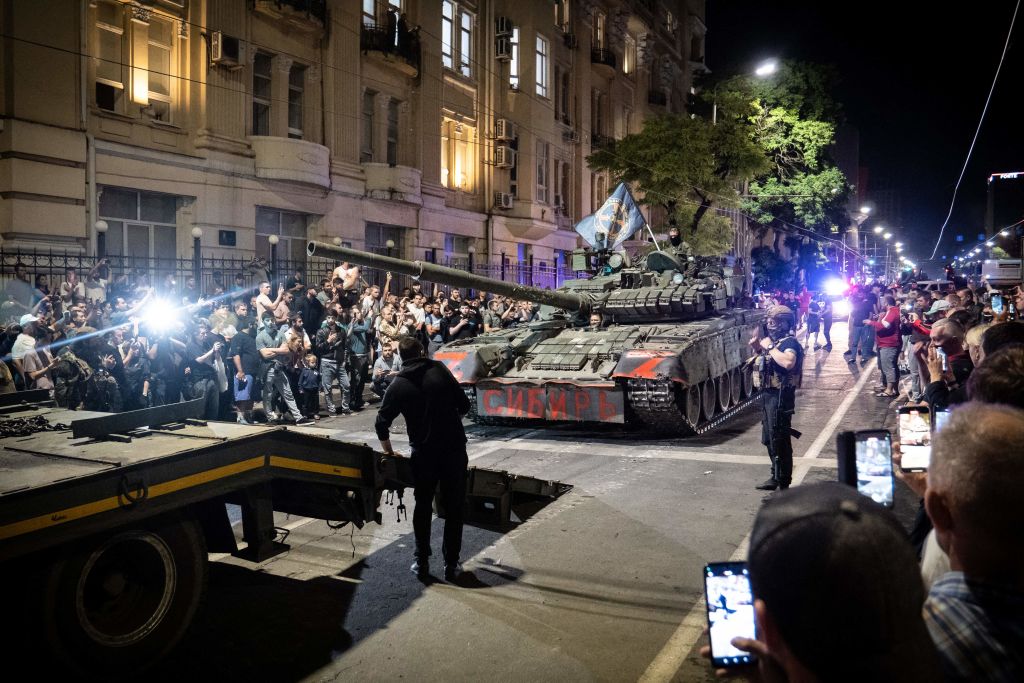America’s decline is not irreversible.
Putin’s Savage Long Game
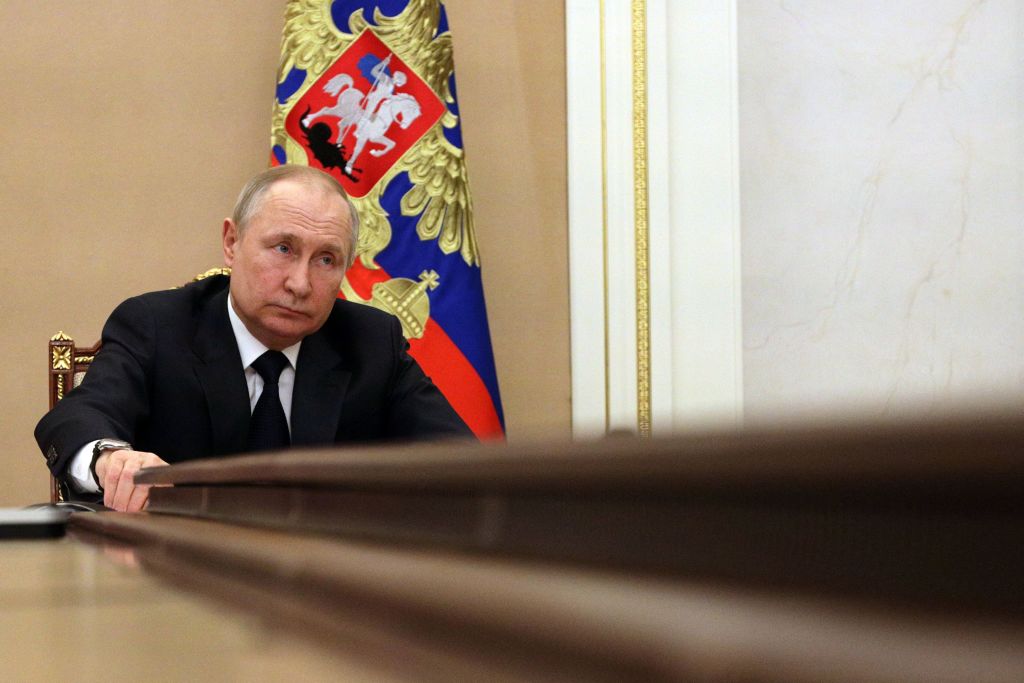
Time is a weapon of war.
This article was originally published in Asia Times.
“Ladybird, ladybird fly away home,
Your house is on fire and your children are gone.”
The ghost of Cardinal Richelieu was singing the old children’s rhyme to the tune of “Thank Heaven for Little Girls,” in his Maurice Chevalier accent. The scratchy sound of an old 78-rpm record buzzed through my earbuds as Richelieu’s avatar danced a few steps of soft-shoe to accompany the song.
We stood, or rather hovered, in a Metaverse reconstruction of the Cardinal’s palace on the Place de Vosges. It was creepier than the ossuary of the Carthusians many levels below the sewers of Paris where I had first conjured Richelieu’s ghost.
Still in beta testing, the Metaverse already was infested with ghosts. The Oculus headset that I obtained from a software engineer who wore the habit of the Capuchin monks projected Richelieu’s specter in cheerful 3-D.
“You are aware, Spengler, that the ditty comes from the Thirty Years’ War in Germany,” said the Cardinal’s ghost: “’Maikäfer flieg! Der Vater ist im Krieg. Die Mutter ist in Pommerland, und Pommerland ist abgebrannt.’ Or in your barbarous language: ‘Ladybird, fly! Father’s gone to war. Mother is in Pomerania, and Pomerania is burned to the ground.’
“Eminence,” I stammered, “I know the rhyme, but what does that have to do with Ukraine?”
“That, Spengler, should be obvious to a scribbler who writes so confidently of the extinction of civilizations. Dilettantes like the Americans think of eliminating a regime. Real connoisseurs of power arrange to eliminate entire provinces. I understand Putin; in a way I envy him. When Charles De Gaulle flew to Moscow to meet Stalin in 1944, he wondered what he might have achieved had he commanded a country like Russia rather than the mere nation of France.”
Richelieu gloated: “With half the population ruled by the Austro-Spanish Habsburgs, allied to Catholic Germany, France ruined its enemies during the Thirty Years’ War. Imagine what I could have done with Russia! The Swedes whom I bribed ravaged Pomerania and left it without people. Children still sing of it. Yet three generations later Peter the Great broke the pride of Sweden, in 1709, at Poltava in Ukraine.”
“But Eminence,” I protested, “Russia has done poorly in its war on Ukraine. It is bogged down with high casualties and missed its chance for a quick victory, and it has succeeded only in uniting the whole of the West against it.”
“I expected better from you, Spengler, than to repeat the nonsense one reads in the newspapers,” Richelieu spat back. A glowing blob of ectoplasm stuck to my Oculus visor. “A quick victory, indeed? And what makes you think that Putin ever wanted a quick victory?”
That stumped me. “Pardon my effrontery, Eminence, but if Putin didn’t want a quick victory, what did he want?”
“Time,” said Richelieu, “is the ultimate weapon. I understood this, and Putin has learned his lesson well. Clausewitz was in general correct when he said that war was the continuation of policy by other means, but there are occasions when war itself is the policy. Here is what Aldous Huxley wrote in his book The Grey Eminence, a profile of my chief of intelligence, Father Joseph de Tremblay. Huxley is quite accurate, as well he should be, for he heard the story first-hand from me, in the ossuary of the Carthusians below the sewers of Paris:
In a memorandum on the affairs of Germany, which he wrote in January 1631 for the instruction of the King, Father Joseph insisted that French policy should be directed to the systematic exploitation of time as the deadliest of all weapons in the Bourbons’ armory. To this end, the negotiations which [Father Joseph on behalf of the Cardinal] had begun at Ratisbon were to be continued, unremittingly.
While the imperial Diet was in session, there had poured into Ratisbon, from every corner of Germany, an unending stream of supplicants… Among these supplicants was a group of delegates from Pomerania. Humbly, but nonetheless insistently, they begged the Emperor and the Electors to consider the lamentable state of their province… Very many had died, and those who survived were eating grass and roots — yes, and young children and the sick and even the newly buried dead….
And yet here [Father Joseph] was, pursuing, patiently and with consummate skill, a policy which could only increase the sufferings of the poor he had promised to serve. With full knowledge of what had already happened in Pomerania, he continued to advocate a course of action that must positively guarantee the spread of cannibalism to other provinces.
“Your house is on fire, your children are gone!” chirped the ghost of Richelieu triumphantly. “Two-thirds of the people of Pomerania perished. When the war ended the founder of Prussia, Friedrich Wilhelm I, found himself without a people, so he invited the persecuted Huguenot of France under the Edict of Potsdam, as well as Poles, the Jews of Lithuania, and whomever else he could entice. His great-grandson Frederick the Great built 1,000 villages by draining swamplands and peopled them with 300,000 immigrants. Pomerania had its revenge on France, to be sure, but it took a century to round up enough Pomeranians to make a difference.”
“France suffered during the Thirty Years’ War as well,” Richelieu burbled, “but there is a reason that the cannibal witch of Hansel and Gretel was a German and not a Frenchwoman.”
I stood in the CGI recreation of the palace on the Place des Vosges in stupefied silence. At length, I whispered, “What will happen to Ukraine?”
“Putin will leave Ukraine as he left Chechnya—although Boris Yeltsin deserves a good deal of the credit; he directed the First Chechen War in 1994, when half a million of Chechnya’s 1.3 million people were displaced, perhaps 100,000 civilians were killed, and half the country was ruined. Perhaps another 100,000 civilians died—so many fled it is hard to tell. Russian troops leveled the capital Grozny in 1999, at high cost to themselves. I find it amusing that American commentators hold up Yeltsin as an exemplar of democratic benevolence when he was every bit as brutal as Putin. There is only one way to govern Russia, and it does not involve lace doilies.”
The cardinal chortled. “Now, my naïve friend, Putin commands Chechen shock troops in Ukraine. Putin understands ‘the systematic exploitation of time as the deadliest of all weapons.’ Ukraine was hollow before the war began. It had one of the world’s lowest birth rates, and its birth rate will fall even farther. Twelve million Ukrainians, fully half the able-bodied population of working age, left before the war started. Another five million have fled. As Russian artillery pounds Ukraine’s cities, more will flee. How many will return? Large parts of Ukraine will fall into ruin. Centuries of Ruthenian resentment against Russian overlords encrusted over the centuries will be consumed in a few weeks of war, and in its place, there will be nothing but a dull sense of horror.”
The cardinal wasn’t finished gloating. “The foolish West believes it can encircle Russia and force Putin from power. Europe cannot do without Russian oil and gas and will continue to pay Putin a billion dollars a day, no matter how despised he is. Most foolish of all, the West imagines that the stolid, brutal war of attrition that Russia is fighting denotes a failure to achieve its objectives, when the war itself is Putin’s objective, just as it was Father Joseph’s objective at Regensburg in 1630. The Protestant cause in Germany was on the verge of collapse, and Imperial victory was close. Nonetheless, I found the means to keep the war going. Father Joseph flattered Austria’s ally, Maximilian I of Bavaria, until he demanded the dismissal of the Imperial Generalissimo Albrecht von Wallenstein. Meanwhile, King Gustavus Adolphus of Sweden had landed in Pomerania, with a subsidy from the French treasury. The Swedes ravaged Central Europe and fought the Austrian Empire to exhaustion in 1635. Then I declared war on Spain, once the great land power of Europe, and bled it dry.”
“You’re a monster,” I blurted out.
“You solicited my advice, Spengler, because you cannot bear the self-satisfied moralizing of the well-meaning people who set this tragedy into motion, and you are appalled by men of action who clean up the mess left by practitioners of the politics of virtue. Get a stronger stomach if you want to see under the surface of history—including the history that is unfolding before your squeamish eyes.”
The American Mind presents a range of perspectives. Views are writers’ own and do not necessarily represent those of The Claremont Institute.
The American Mind is a publication of the Claremont Institute, a non-profit 501(c)(3) organization, dedicated to restoring the principles of the American Founding to their rightful, preeminent authority in our national life. Interested in supporting our work? Gifts to the Claremont Institute are tax-deductible.
It’s amusing to watch the Biden circus but frightening to consider that nobody’s in charge.
Moralism, utopianism, and denunciations of all things Russian are not the answer in the present fight.
The war in Ukraine is not an excuse for russophobic iconoclasm.
The rise of the Wagner Group signals a significant change in power politics.
U.S. meddling in West Africa will backfire.

